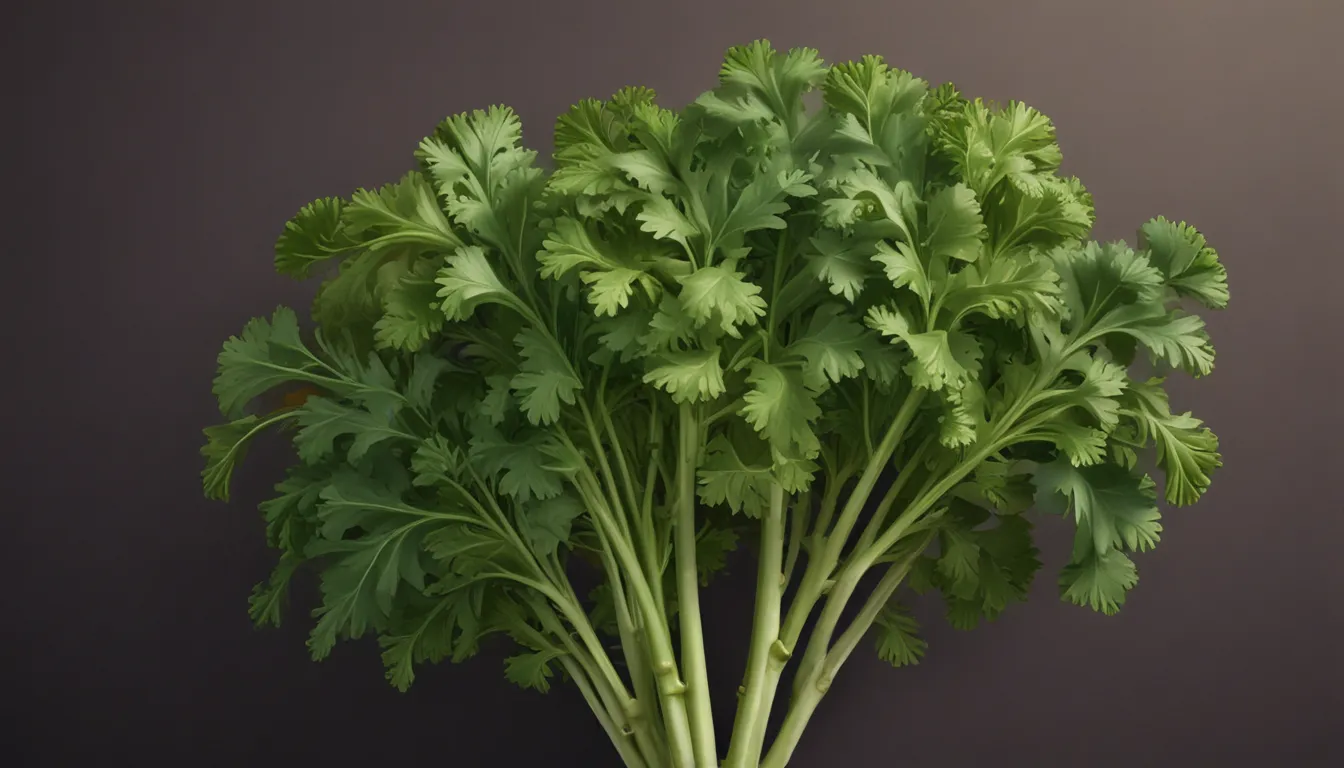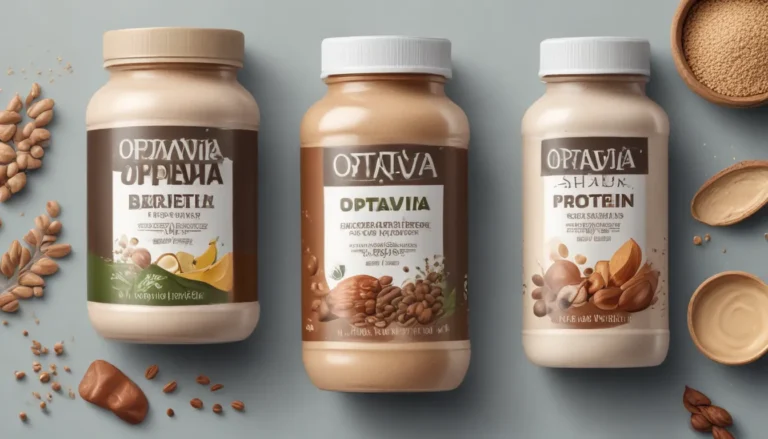The pictures in our articles might not always show exactly what the text is talking about. We use these images to make the article more interesting and eye-catching. They are there to add to the text, but not to replace it or show every detail.
Parsley, a beloved herb in the culinary world, serves as more than just a garnish; it is a powerhouse of nutrients that elevate the flavor and health benefits of your dishes. In this article, we will delve into 14 fascinating facts about parsley that will expand your knowledge about this versatile herb. We will explore its rich vitamin and mineral content, its historical and cultural significance, as well as its medicinal properties.
Unveiling the Nutritional Power of Parsley
Parsley is not only visually appealing but also highly nutritious. Loaded with essential vitamins such as A, C, and K, along with folate and iron, parsley offers a plethora of nutrients beneficial for your body's overall well-being.
Exploring the Diversity of Parsley
There are two main types of parsley: curly leaf and flat leaf (Italian parsley). While both varieties share a similar flavor profile, the flat-leaf parsley is favored by many chefs for its robust taste and ease of use in cooking.
Harnessing the Medicinal Properties of Parsley
Beyond its culinary uses, parsley boasts a long history of medicinal applications. It is known to aid digestion, freshen breath, and act as a natural diuretic, showcasing its versatility as a beneficial herb.
Embracing the Antioxidant-Rich Nature of Parsley
Parsley is a rich source of antioxidants, which play a vital role in protecting your cells against damage caused by free radicals. Incorporating parsley into your diet can contribute to your overall health and vitality.
Celebrating with Parsley
In several cultures, parsley symbolizes celebration and joy, often featuring in festive dishes and decorations during special occasions like weddings and birthdays. Its presence adds a touch of festivity and cultural significance to culinary creations.
The Culinary Versatility of Parsley
From soups and salads to sauces and marinades, parsley shines as a versatile herb that enhances the flavor and aesthetics of diverse dishes. Its fresh and vibrant taste complements a range of savory and sweet flavors.
Cultivating Parsley with Ease
Whether you possess a green thumb or are a novice gardener, growing parsley is a simple task. Whether in containers or garden beds, parsley thrives, making it accessible to all herb enthusiasts.
Tapping into Traditional Medicinal Uses of Parsley
Traditional medicine systems such as Ayurveda and Chinese medicine recognize parsley for its healing properties. It is believed to possess diuretic, anti-inflammatory, and detoxifying effects on the body.
Unraveling the Mythological Links of Parsley
In Greek mythology, parsley is associated with the goddess Persephone, who purportedly transformed into a parsley plant after being abducted by Hades. This myth underlines the deep-rooted cultural significance of parsley.
Freshening Your Breath with Parsley
An age-old remedy, chewing on fresh parsley after consuming garlic-laden meals can help combat bad breath by refreshing your oral cavity with its natural antibacterial properties.
Savoring Middle Eastern Cuisine with Parsley
Parsley holds a significant place in Middle Eastern cuisine, imparting its distinctive flavor and freshness to beloved dishes like tabbouleh, hummus, and falafel. Its vibrant hue enhances the visual appeal of these culinary delights.
Enhancing Dishes with Brightness
With its lush green color and delicate foliage, parsley adds visual allure and brightness to any dish, elevating its aesthetics and making it more appetizing to the eyes.
Supporting Digestion with Parsley
Renowned for its digestive benefits, parsley stimulates digestion, reduces bloating, and fosters a healthy gut environment. Including parsley in your meals can aid in maintaining optimal digestive health.
Dealing with Water Retention Naturally
Parsley serves as a natural diuretic, assisting in increasing urine production and facilitating the removal of excess fluids from the body. It can be a helpful remedy for individuals struggling with water retention.
Conclusion: Celebrating the Versatility of Parsley
In conclusion, parsley transcends its role as a mere garnish to emerge as a versatile herb with myriad health benefits and culinary applications. Packed with vitamins, minerals, and antioxidants, parsley enriches your meals with freshness and vibrancy. Whether sprinkled on salads, blended into smoothies, or incorporated into sauces and soups, parsley adds a refreshing touch to your culinary creations, making them more enticing and nutritious.
FAQs: Your Queries Answered
-
Is parsley solely used as a garnish?
No, parsley is a versatile herb used in various cuisines for its flavor and health-promoting properties. It can be added to soups, salads, sauces, and even smoothies. -
Can parsley aid in digestion?
Yes, parsley contains enzymes that support digestion, alleviating bloating and indigestion. Its inclusion in your meals can enhance digestive health. -
What are the nutritional benefits of consuming parsley?
Parsley is rich in vitamins A, C, and K, along with minerals like potassium and iron. It also contains flavonoids and antioxidants that contribute to overall well-being. -
Does parsley possess anti-inflammatory properties?
Yes, parsley harbors anti-inflammatory characteristics due to its high antioxidant and flavonoid content. Regular consumption of parsley may help reduce inflammation in the body. -
Can parsley freshen breath?
Yes, parsley's natural antibacterial properties can combat bad breath. Chewing on parsley leaves can help refresh your breath by combating oral bacteria. -
How should parsley be stored?
Parsley should be stored in the refrigerator. To maintain freshness, trim the stem ends, place the bunch in water, and loosely cover the leaves with a plastic bag or damp paper towel. -
Is parsley useful as a detoxifier?
With its diuretic properties, parsley aids in flushing out toxins from the body. Adding parsley to your diet can support the body's detoxification processes. -
Can parsley be grown at home?
Yes, parsley is relatively easy to grow at home. Thriving in containers with moderate sunlight and well-drained soil, parsley can be cultivated from seeds or young plants. -
Are there any precautions to consider when using parsley?
Although parsley is generally safe for consumption, individuals allergic to celery or carrot may be prone to parsley allergies. Consult a healthcare professional if you have concerns. -
Can parsley alleviate menstrual cramps?
Yes, parsley contains compounds that relax the uterus, potentially easing menstrual cramps. Drinking parsley tea or including parsley in your meals may offer relief during menstruation.
Delve into the remarkable world of parsley beyond the 14 enchanting facts explored. Uncover hidden facets of this herb that await your curiosity, promising a journey filled with surprises and discoveries. For those intrigued by herbs, the 19 mesmerizing chervil facts beckon, inviting you to explore its lesser-known traits. And for enthusiasts of bold flavors, the astounding characteristics of cilantro are sure to captivate your palate and imagination. Each herb has its unique story, urging you to unravel their secrets one revelation at a time.
Your Feedback Matters
At the core of our mission is a dedication to providing accurate and engaging content. Each fact shared on our platform is contributed by users like you, bringing a diverse range of insights and information. Our team of editors meticulously reviews each submission, ensuring that the facts presented are not only captivating but also credible. Trust in our commitment to quality and authenticity as you engage with us to expand your knowledge horizon.






